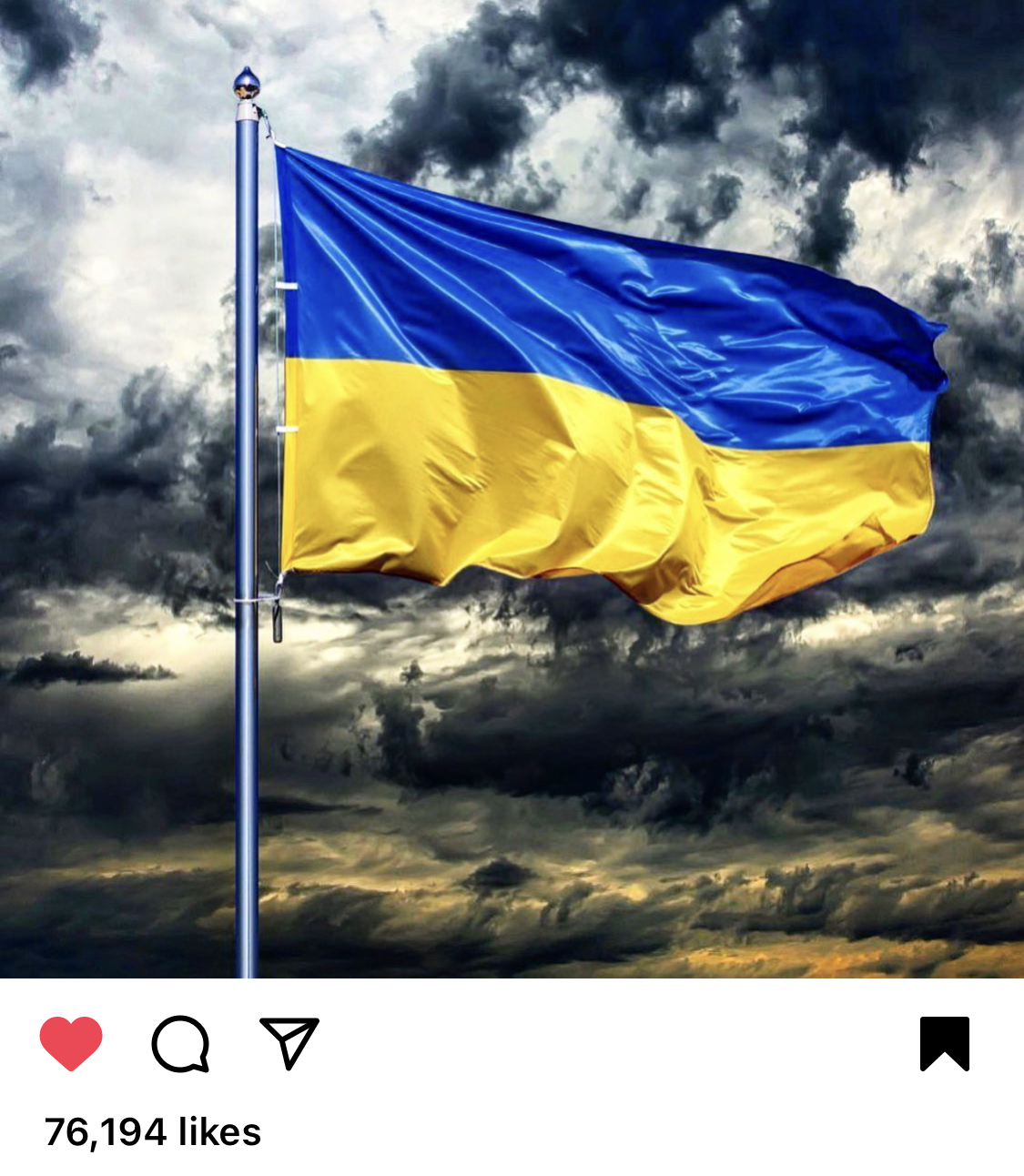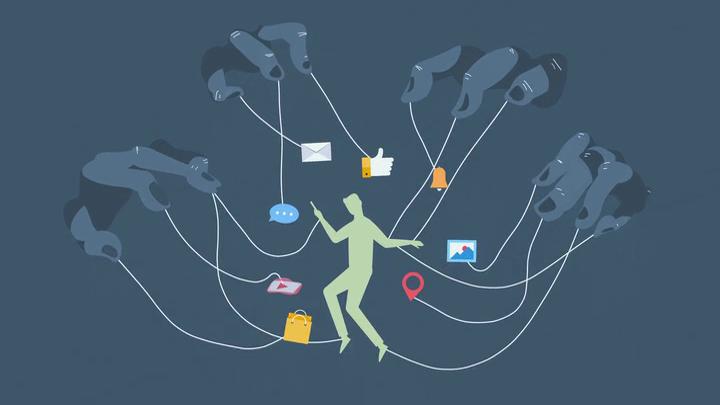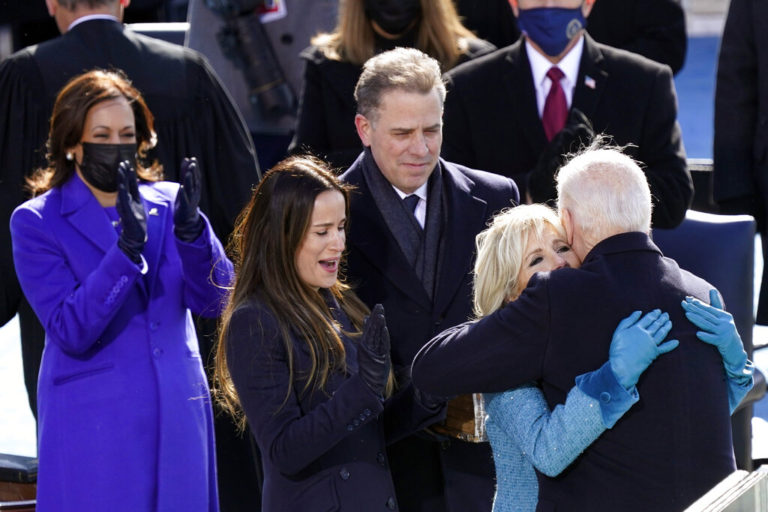
Scroll through your Instagram feed today and you’re likely to find posts of Ukrainian flags dotted with slogans like “Pray for Ukraine,” “I stand with Ukraine,” and “Stop the war! Stop Putin!” We’ve been down this road before. In all honesty, do you truly care about the intricacies or implications of Russia’s invasion into Ukraine? If your answer was no, I’ll tell you why it’s not necessarily your fault, and why you’re definitely not alone.
Gen Z’s infamous state of constant hyper-connectedness has yet again landed us on the proverbial “runaway bandwagon.” Full steam ahead— destination unknown.
Instagram and other social media platforms have seen countless cycles of its users dutifully pouring out support and expressions of unity over a certain idea en masse countless times. The terrorist attacks on Paris in 2015, the MeToo movement in 2017, the Parkland school shooting in 2018, the healthcare workers’ plight during COVID-19 lockdown in 2020, the Free Palestine movement in 2021, and perhaps the most magnetic: the Black Lives Matter movement. Over the past decade, Gen Z’s use of social media has shaped the way we respond to and interact with tragic situations, with the method of collective bandwagoning taking center stage.
Many users find themselves face to face with an issue of global importance for the first time on social media and are then compelled or guilted into abjectly vomiting their fabricated, repetitive sentiments back into the echochamber. This is all they can do to avoid being called out or “canceled” due to lack of engagement. The sheer magnitude of demonstrations of “wokeness” and political awareness at every turn, while objectively supporting important causes, should be cause for concern due to the mental implications that these cycles have on those who are being compelled to participate. Because there are so many of these urgent calls for waves of support online, most are jumping from tragedy to tragedy without having time to process or understand what is truly going on.
The cycle of flash-and-burn bandwagon trends on social media is contributing to a condition called compassion fatigue. This theory, developed by Charles Figley, is used to describe the state of burnout, stress, and psychological exhaustion due to overexposure to trauma causing a diminished ability to connect or empathize with others. Ultimately, we are living in a dangerous pandemic of overcommunication which has led to a serious absence of intimacy.
What does this have to do with Ukraine? Unfortunately, war is a prime subject for Gen Z bandwagoning— it’s got a “right” and a “wrong” side, plenty of traumatic anecdotes to share, and it can be easily boiled down to a few simple, easily repeatable sentiments. On its own, the Ukrainian war’s presence on social media would likely spread awareness about the nature of the conflict and encourage individuals to seek out more information, but when it’s one of Gen Z’s many bandwagons fighting for the attention and compassion of the user, it hardly garnering the real attention it deserves.
Instead, those propagating content about each issue online are forced to dig deeper to attract the eyes of users. The bandwagons must circulate increasing amounts of what has now been coined “trauma porn” (thinly veiled as a call for activism) to hold our attention. This tactic of perversely oversharing and exploiting the misfortune of others for attention on social media is rapidly growing. This spreads consumer’s bandwidths for processing trauma and empathizing with people too thin and diminishes their capacity to interact with important issues. A user will only have the mental energy to repost a popular adage and then will move on to the next tragedy, not to seek further information from news outlets or take the time to understand why that event is occurring and what they can do about it.
Gen Z’s problematic, prolific use of social media is making the war worse. From misinformation about Ukraine’s government and memes about Vladimir Putin to the central cause of the crisis being lost in the sea of commodified trauma, America’s ability to give rational thought to the situation and turn compassion into efficient action is once again fading. This burgeoning state of paralyzation sweeping the country is largely symptomatic of Gen Z’s contagious tendency toward irony and pessimism resulting from our rapid-fire overexposure to the overwhelming issues that plague contemporary existence.



